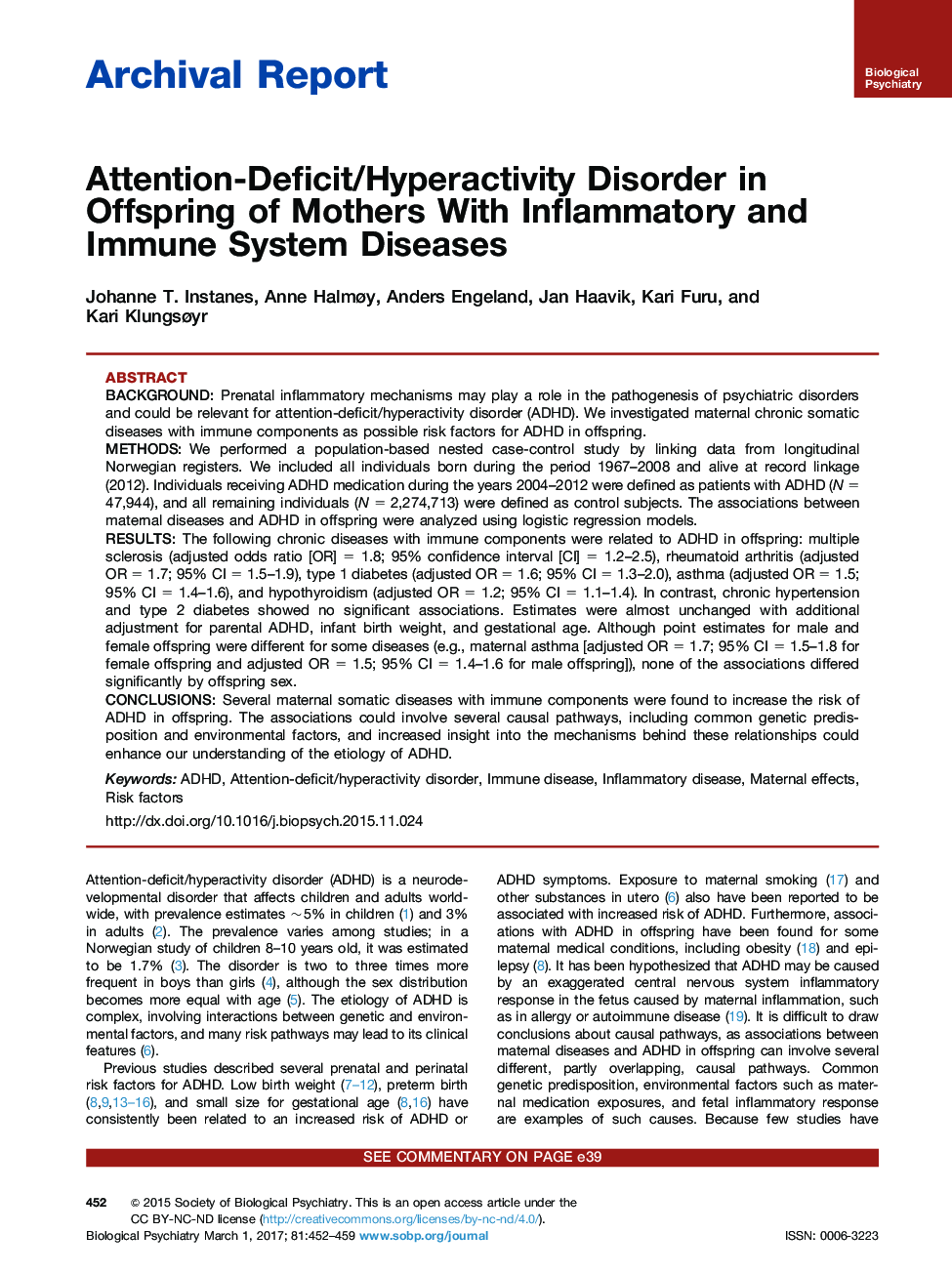| کد مقاله | کد نشریه | سال انتشار | مقاله انگلیسی | نسخه تمام متن |
|---|---|---|---|---|
| 5720618 | 1411320 | 2017 | 8 صفحه PDF | دانلود رایگان |
BackgroundPrenatal inflammatory mechanisms may play a role in the pathogenesis of psychiatric disorders and could be relevant for attention-deficit/hyperactivity disorder (ADHD). We investigated maternal chronic somatic diseases with immune components as possible risk factors for ADHD in offspring.MethodsWe performed a population-based nested case-control study by linking data from longitudinal Norwegian registers. We included all individuals born during the period 1967-2008 and alive at record linkage (2012). Individuals receiving ADHD medication during the years 2004-2012 were defined as patients with ADHD (N = 47,944), and all remaining individuals (N = 2,274,713) were defined as control subjects. The associations between maternal diseases and ADHD in offspring were analyzed using logistic regression models.ResultsThe following chronic diseases with immune components were related to ADHD in offspring: multiple sclerosis (adjusted odds ratio [OR] = 1.8; 95% confidence interval [CI] = 1.2-2.5), rheumatoid arthritis (adjusted OR = 1.7; 95% CI = 1.5-1.9), type 1 diabetes (adjusted OR = 1.6; 95% CI = 1.3-2.0), asthma (adjusted OR = 1.5; 95% CI = 1.4-1.6), and hypothyroidism (adjusted OR = 1.2; 95% CI = 1.1-1.4). In contrast, chronic hypertension and type 2 diabetes showed no significant associations. Estimates were almost unchanged with additional adjustment for parental ADHD, infant birth weight, and gestational age. Although point estimates for male and female offspring were different for some diseases (e.g., maternal asthma [adjusted OR = 1.7; 95% CI = 1.5-1.8 for female offspring and adjusted OR = 1.5; 95% CI = 1.4-1.6 for male offspring]), none of the associations differed significantly by offspring sex.ConclusionsSeveral maternal somatic diseases with immune components were found to increase the risk of ADHD in offspring. The associations could involve several causal pathways, including common genetic predisposition and environmental factors, and increased insight into the mechanisms behind these relationships could enhance our understanding of the etiology of ADHD.
Journal: Biological Psychiatry - Volume 81, Issue 5, 1 March 2017, Pages 452-459
